#Frederick Douglass Kirkpatrick
Video
youtube
The Deacons for The Defense -”people had gotten tired of all that jim crow mess, that is why the Deacons was born”
The Deacons · Frederick Douglass Kirkpatrick · Pete Seeger · Jeanne Humphries Ballads of Black America ℗ 2004 Smithsonian Folkways Recordings / 1972 Folkways Records Released on: 1972-01-01
#youtube#The Deacons for The Defense#Black History Songs#Mississippi#combat jim crow#Frederick Douglass Kirkpatrick#anti kkk#Protect Black LIves#Black History Matters#Black Lives Matter#Black Self Defense
6 notes
·
View notes
Text
How These Civil Rights Era Black Men Terrorized The KKK
How These Civil Rights Era Black Men Terrorized The KKK
Continue reading Untitled
youtube
View On WordPress
#afrikan history#black community#black men murdered#civil rights movement#CORE#deacons of defense and justice#earnest thomas#firearms#frederick douglass kirkpatrick#history#kkk#louisiana#police#Youtube
1 note
·
View note
Text
youtube
The Fires of Napalm · Frederick Douglass Kirkpatrick · Jimmy Collier
4 notes
·
View notes
Text
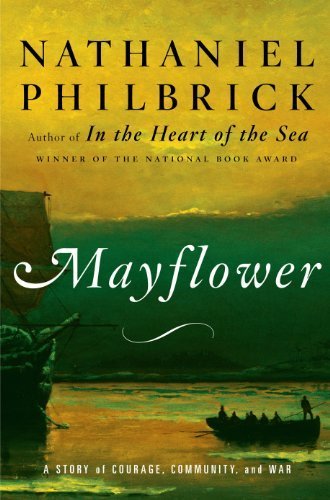
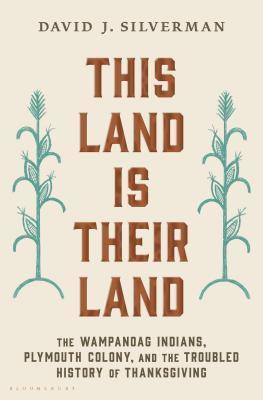


Happy Thanksgiving!
Learn more about the complicated history of this holiday with these nonfiction recommendations.
Mayflower by Nathaniel Philbrick
How did America begin?
This simple question launches acclaimed author Nathaniel Philbrick on an extraordinary journey to understand the truth behind our most sacred national myth: the voyage of the Mayflower and the settlement of Plymouth Colony. As Philbrick reveals in this electrifying new book, the story of the Pilgrims does not end with the First Thanksgiving; instead, it is a fifty-five-year epic that is at once tragic and heroic, and still carries meaning for us today.
This Land is Their Land by David J. Silverman
In March 1621, when Plymouth's survival was hanging in the balance, the Wampanoag sachem (or chief), Ousamequin (Massasoit), and Plymouth's governor, John Carver, declared their people's friendship for each other and a commitment to mutual defense. Later that autumn, the English gathered their first successful harvest and lifted the specter of starvation. Ousamequin and 90 of his men then visited Plymouth for the “First Thanksgiving.” The treaty remained operative until King Philip's War in 1675, when 50 years of uneasy peace between the two parties would come to an end.
400 years after that famous meal, historian David J. Silverman sheds profound new light on the events that led to the creation, and bloody dissolution, of this alliance. Focusing on the Wampanoag Indians, Silverman deepens the narrative to consider tensions that developed well before 1620 and lasted long after the devastating war-tracing the Wampanoags' ongoing struggle for self-determination up to this very day.
This unsettling history reveals why some modern Native people hold a Day of Mourning on Thanksgiving, a holiday which celebrates a myth of colonialism and white proprietorship of the United States. This Land is Their Land shows that it is time to rethink how we, as a pluralistic nation, tell the history of Thanksgiving.
We Gather Together by Denise Kiernan
From Ancient Rome through 21st-century America, bestselling author Denise Kiernan brings us a biography of an idea: gratitude, as a compelling human instinct and a global concept, more than just a mere holiday. Spanning centuries, We Gather Together is anchored amid the strife of the Civil War, and driven by the fascinating story of Sarah Josepha Hale, a widowed mother with no formal schooling who became one of the 19th century’s most influential tastemakers and who campaigned for decades to make real an annual day of thanks.
Populated by an enthralling supporting cast of characters including Frederick Douglass, Abraham Lincoln, Sojourner Truth, Walt Whitman, Norman Rockwell, and others, We Gather Together is ultimately a story of tenacity and dedication, an inspiring tale of how imperfect people in challenging times can create powerful legacies.
Thanksgiving by Melanie Kirkpatrick
We all know the story of Thanksgiving. Or do we? This uniquely American holiday has a rich and little-known history beyond the famous Pilgrim feast of 1621.
Melanie Kirkpatrick journeys through four centuries to craft a vivid portrait of our nation's best-loved tradition in Thanksgiving: The Holiday at the Heart of the American Experience. Drawing on newspaper accounts, official documents, private correspondence, and cookbooks, she illuminates what the holiday has meant to generations of Americans.
Presidents play key parts: Washington proclaimed our first national day of Thanksgiving amid controversy over his constitutional power to do so. Lincoln aimed to heal a fractured nation when he called for all Americans to mark a Thanksgiving Day. FDR sparked a debate on states’ rights by changing the traditional date of the holiday. The story also includes the evolution of Thanksgiving dinner, how football became part of the celebration, and how Native Americans view the holiday.
While the rites and rituals have evolved, the essence of Thanksgiving remains the same: family and friends feasting together in a spirit of hospitality and gratitude. Kirkpatrick's exploration of America’s oldest tradition offers a fascinating look into the meaning of the holiday we celebrate on the fourth Thursday of November.
#history#thanksgiving#nonfiction#reading recs#reading recommendations#book recs#book recommendations#library books#tbr#tbr pile#to read#book tumblr#booklr#book blog#library blog#readers advisory
5 notes
·
View notes
Audio
Label Of Record List “Stay By Me” But Back Cover Of LP List “Stay With Me”

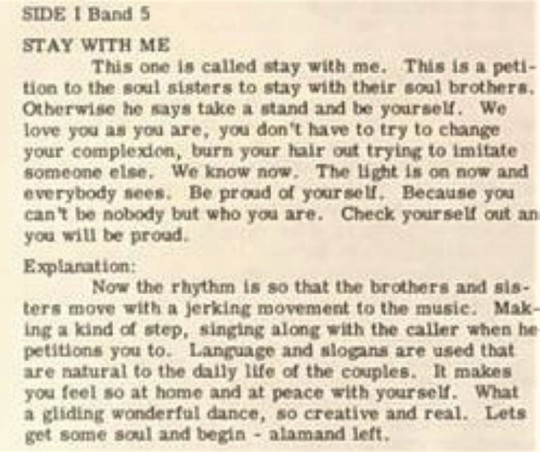
#Rev. Frederick Douglass Kirkpatrick And The Hearts#Stay With Me#1969#Stay By Me#I'm Going With Stay With Me Cause That's What He's Singing!#Even Though It's A Roughly Veiled Cover Of Stand By Me
2 notes
·
View notes
Link
The National Garden should be composed of statues, including statues of Ansel Adams, John Adams, Samuel Adams, Muhammad Ali, Luis Walter Alvarez, Susan B. Anthony, Hannah Arendt, Louis Armstrong, Neil Armstrong, Crispus Attucks, John James Audubon, Lauren Bacall, Clara Barton, Todd Beamer, Alexander Graham Bell, Roy Benavidez, Ingrid Bergman, Irving Berlin, Humphrey Bogart, Daniel Boone, Norman Borlaug, William Bradford, Herb Brooks, Kobe Bryant, William F. Buckley, Jr., Sitting Bull, Frank Capra, Andrew Carnegie, Charles Carroll, John Carroll, George Washington Carver, Johnny Cash, Joshua Chamberlain, Whittaker Chambers, Johnny “Appleseed” Chapman, Ray Charles, Julia Child, Gordon Chung-Hoon, William Clark, Henry Clay, Samuel Clemens (Mark Twain), Roberto Clemente, Grover Cleveland, Red Cloud, William F. “Buffalo Bill” Cody, Nat King Cole, Samuel Colt, Christopher Columbus, Calvin Coolidge, James Fenimore Cooper, Davy Crockett, Benjamin O. Davis, Jr., Miles Davis, Dorothy Day, Joseph H. De Castro, Emily Dickinson, Walt Disney, William “Wild Bill” Donovan, Jimmy Doolittle, Desmond Doss, Frederick Douglass, Herbert Henry Dow, Katharine Drexel, Peter Drucker, Amelia Earhart, Thomas Edison, Jonathan Edwards, Albert Einstein, Dwight D. Eisenhower, Duke Ellington, Ralph Waldo Emerson, Medgar Evers, David Farragut, the Marquis de La Fayette, Mary Fields, Henry Ford, George Fox, Aretha Franklin, Benjamin Franklin, Milton Friedman, Robert Frost, Gabby Gabreski, Bernardo de Gálvez, Lou Gehrig, Theodor Seuss Geisel, Cass Gilbert, Ruth Bader Ginsburg, John Glenn, Barry Goldwater, Samuel Gompers, Alexander Goode, Carl Gorman, Billy Graham, Ulysses S. Grant, Nellie Gray, Nathanael Greene, Woody Guthrie, Nathan Hale, William Frederick “Bull” Halsey, Jr., Alexander Hamilton, Ira Hayes, Hans Christian Heg, Ernest Hemingway, Patrick Henry, Charlton Heston, Alfred Hitchcock, Billie Holiday, Bob Hope, Johns Hopkins, Grace Hopper, Sam Houston, Whitney Houston, Julia Ward Howe, Edwin Hubble, Daniel Inouye, Andrew Jackson, Robert H. Jackson, Mary Jackson, John Jay, Thomas Jefferson, Steve Jobs, Katherine Johnson, Barbara Jordan, Chief Joseph, Elia Kazan, Helen Keller, John F. Kennedy, Francis Scott Key, Coretta Scott King, Martin Luther King, Jr., Russell Kirk, Jeane Kirkpatrick, Henry Knox, Tadeusz Kościuszko, Harper Lee, Pierre Charles L’Enfant, Meriwether Lewis, Abraham Lincoln, Vince Lombardi, Henry Wadsworth Longfellow, Clare Boothe Luce, Douglas MacArthur, Dolley Madison, James Madison, George Marshall, Thurgood Marshall, William Mayo, Christa McAuliffe, William McKinley, Louise McManus, Herman Melville, Thomas Merton, George P. Mitchell, Maria Mitchell, William “Billy” Mitchell, Samuel Morse, Lucretia Mott, John Muir, Audie Murphy, Edward Murrow, John Neumann, Annie Oakley, Jesse Owens, Rosa Parks, George S. Patton, Jr., Charles Willson Peale, William Penn, Oliver Hazard Perry, John J. Pershing, Edgar Allan Poe, Clark Poling, John Russell Pope, Elvis Presley, Jeannette Rankin, Ronald Reagan, Walter Reed, William Rehnquist, Paul Revere, Henry Hobson Richardson, Hyman Rickover, Sally Ride, Matthew Ridgway, Jackie Robinson, Norman Rockwell, Caesar Rodney, Eleanor Roosevelt, Franklin D. Roosevelt, Theodore Roosevelt, Betsy Ross, Babe Ruth, Sacagawea, Jonas Salk, John Singer Sargent, Antonin Scalia, Norman Schwarzkopf, Junípero Serra, Elizabeth Ann Seton, Robert Gould Shaw, Fulton Sheen, Alan Shepard, Frank Sinatra, Margaret Chase Smith, Bessie Smith, Elizabeth Cady Stanton, Jimmy Stewart, Harriet Beecher Stowe, Gilbert Stuart, Anne Sullivan, William Howard Taft, Maria Tallchief, Maxwell Taylor, Tecumseh, Kateri Tekakwitha, Shirley Temple, Nikola Tesla, Jefferson Thomas, Henry David Thoreau, Jim Thorpe, Augustus Tolton, Alex Trebek, Harry S. Truman, Sojourner Truth, Harriet Tubman, Dorothy Vaughan, C. T. Vivian, John von Neumann, Thomas Ustick Walter, Sam Walton, Booker T. Washington, George Washington, John Washington, John Wayne, Ida B. Wells-Barnett, Phillis Wheatley, Walt Whitman, Laura Ingalls Wilder, Roger Williams, John Winthrop, Frank Lloyd Wright, Orville Wright, Wilbur Wright, Alvin C. York, Cy Young, and Lorenzo de Zavala.”
donald trump ki kicsodája az amerikai történelemben
23 notes
·
View notes
Photo
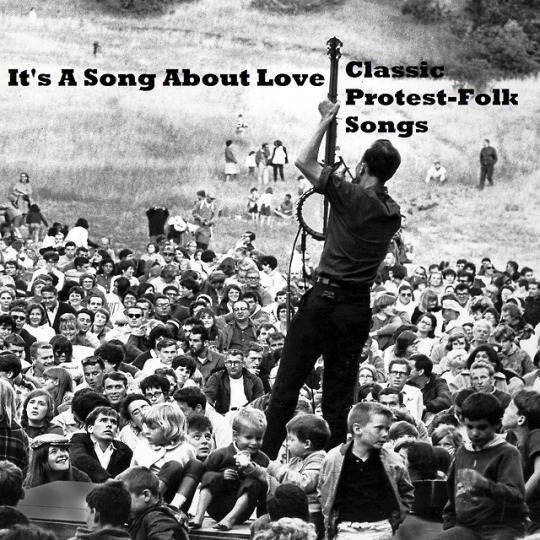
Classic protest folk songs, most of which should not still be so pointedly relevant today, in some cases 40+ years after their recording.
If I Had a Hammer- Peter, Paul, & Mary
Oh, Had I a Golden Thread- Pete Seeger
Singing for Our Lives- Holly Near
This Land is Your Land- Woody Guthrie
Bourgeois Blues- Lead Belly
What a Friend We Have in Congress- Pete Seeger
Talking Un-American Blues- Betty Sanders
What Did You Learn in School Today?- Flame n’ Peach & the Liberated Waffles
Buy a Gun For Your Son- Tom Paxton
Waist Deep in the Big Muddy- Pete Seeger
Everybody’s Got the Right to Live- Jimmy Collier and Frederick Douglass Kirkpatrick
Legal Illegal- Ewan MacColl and Peggy Seeger
Status Quo- Art Samuels
Song of Choice- Peggy Seeger
It Isn’t Nice- Malvina Reynolds
We Shall Not Be Moved- Pete Seeger
16 tracks; 50 mins. [Spotify]
[my other playlists]
256 notes
·
View notes
Text
Historical Hour With Hilary: 1x01
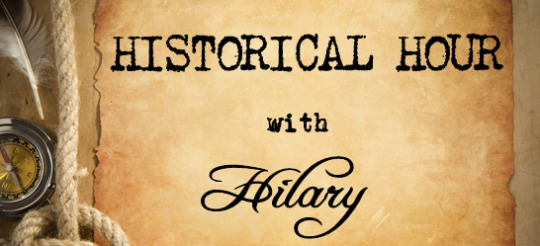
Welcome to Historical Hour With Hilary, which is exactly what it says on the tin: for each week of the rewatch, I (@qqueenofhades) will be writing a companion piece discussing aspects of the real-life history, people, and events featured in the episode, depending on what I feel like covering. I aim to amaze, entertain, and educate you, one of which I occasionally may end up actually doing. In this first installment, I very quickly discovered that it had relatively little to do with the Hindenburg disaster of May 6, 1937 itself, but much more with the stone-cold badass female journalists of the late 19th and early 20th centuries, who could have served as the inspiration for the fictional Kate Drummond that the Time Team meets in their first trip to the past, and who makes a particular impression on Wyatt. So. Much. Badass.
Be advised: You may want to run headfirst through a brick wall after learning about these women, from the sheer amount of awesome pulsating through you. I cannot be held legally responsible if you do this.
A woman working in the 1930s as a print journalist, even a foreign or war correspondent as it’s hinted Kate is, would not be completely or even considerably uncommon. They already had a history of over a hundred years. Anne Royall (1769-1854) is commonly credited as the first professional female journalist in America, a hard-nosed saleswoman who would stop at nothing to sell her paper and who was also rather famously known as the first woman to obtain a presidential interview, with John Quincy Adams, by catching him skinny-dipping in the Potomac River one morning and sitting on his clothes until he agreed to talk to her. (She certainly interviewed him, the sitting-on-clothes part is somewhat colorful, but shhh.) Margaret Fuller (1810-1850) was known as the best-read person in New England of either gender, was the first woman allowed to use the Harvard University library, and wrote a landmark work, Woman in the Nineteenth Century, that was profoundly influential on the thinking of Susan B. Anthony and the beginning of the suffragette movement, and which critiqued the treatment of Native and African Americans alongside the ongoing oppression of women. At the New York Tribune, she was the first full-time literary critic and book reviewer in America, and later the Tribune’s first female foreign correspondent.
Victoria Woodhull (1838-1927), meanwhile, is a personal heroine of mine. The first woman to run for President of the United States (having nominated Frederick Douglass as her running mate), she was also the first female stockbrocker on Wall Street, founded Woodhull and Claflin’s Weekly with her sister Tennessee, was an advocate of free love and the right to do this without any government interference, gave numerous blazing speeches on female equality, political advocacy, and equal rights, and otherwise was engaged in fucking the patriarchy in every direction the patriarchy was available to be fucked. She fought with Anthony Comstock, self-appointed guardian of late 19th-century America’s moral virtue and sponsor of the anti-obscenity Comstock Laws (who absolutely did not approve of fucking in any shape or form) and testified before the House Judiciary Committee about women’s suffrage; in fact, she was too radical for even some of the suffragettes themselves. A few decades later, Elizabeth Cochran Seaman (1864-1922), far better known as the intrepid Nellie Bly, was pioneering investigative journalism as a reporter for the New York World; she traveled around the world in 72 days as a publicity stunt to better the fictional 80-day journey by Jules Verne’s hero Phileas Fogg and wrote a book about it; she famously posed as a patient and got herself committed to a mental hospital for 10 days to reveal the inhumane conditions of insane asylums at the time, wrote a book about that too, and was instrumental in pushing for reforms in caring for the mentally ill as a result.
Despite these trend-setting women, female journalists were still rare in America at the turn of the twentieth century, but the number had risen from just 288 (in 1880) to 12,000 in 1930 -- almost 25% of all journalists. They were, however, often restricted to typically “female” subject interests (the home, fashion, cooking, etc) and faced, as you might expect, considerable sexism. In 1939, Zelda Reed complains about men who pay lip service to being feminists, but won’t actually hire women to be reporters (or pay them equally... The More Things Change.Gif). During this period, however, Kate Drummond would have been part of a steadily growing -- and even more awesome -- cohort of female correspondents, including the likes of:
Clare Hollingworth (1911-2017 -- yes, she died just this past January at the age of 105) who was the first correspondent of any gender to break the news of Hitler’s invasion of Poland and the start of the second world war. She then went to work personally issuing British visas for Germans, Jews, and communists to escape the Nazis, which MI5 put a halt to because of concerns about too many “undesirables” entering the country (THE MORE THINGS CHANGE DOT GIF!!!) She would later write about conflicts in Vietnam, Algeria, the Middle East, the cultural revolution in China, and interview the shah of Iran (both the first and last interviews he ever gave). She also broke the Kim Philby spying scandal during the Cold War, and worked for a laundry list of noted papers.
Sigrid Schultz (1893-1980) also covered the First and Second World Wars, was the first chief of Central Europe and foreign correspondent for the Chicago Tribune, and she hated all these goddamn Nazis up in the goddamn place. Really hated them, wrote extensively about them (under her male pseudonym John Dickson) had unprecedented access to them, wrote pieces exposing the concentration camps and the treatment of Jews under Hitler’s regime, and was called “the dragon lady from Chicago” by Hermann Goering. You know, Hitler’s right-hand man. I’m sorry, if Number Two Nazi is scared of you and calls you a dragon lady, you are automatically The Awesomest. I don’t make the rules.
Martha Gellhorn (1908-1998) was probably one of the greatest journalists and war correspondents of the 20th century, full stop. The third wife of Ernest Hemingway (who we also meet a few Timeless episodes down the line) between 1940-1945, she covered every major conflict of the 20th century and was the only woman to land at Normandy on June 6, 1944. How did she do that? Because Hemingway stole her press credential to cover D-day, so she stowed away in a hospital ship toilet, hit the beach disguised as a stretcher bearer -- and beat ol’ Ernest there, just for good measure. She was determined to be remembered in her own right and not just for her contentious relationship with him; there is now the Martha Gellhorn Prize for Journalism.
Helen Kirkpatrick (1909-1997) also covered WWII extensively, for both British and American newspapers, and entered Paris in August 1944. She later reported on the Cold War, was a longtime Democratic Party activist, and received both the French Legion of Honor and the U.S. Medal of Freedom. Virginia Cowles (1910-1983) also worked on some of the same conflicts as Gellhorn and Kirkpatrick, including the Spanish Civil War and WWII.
Margaret Bourke-White (1904-1971) and Dorothea Lange (1895-1965) were groundbreaking photojournalists working during the 1930s and the height of the Depression (you’ve definitely seen Lange’s most famous photo, Migrant Mother) which helped show the real consequences of the economic devastation. The crash of the Hindenburg itself was a major landmark in the history of journalism (scroll about halfway down the page) due to the wide availability of newsreel and radio coverage of the disaster -- and as we can see, Kate Drummond, had she survived her encounter with the Time Team, would have been in some truly amazing company indeed, covering both it and the conflicts to come. She would also have been a familiar character in a movie to audiences at the time, given as Hollywood has arguably gotten much worse at portraying female journalists.
(Read more about all these women here.)
Join me next week as the Time Team, and we, head to 1865 and the assassination of Abraham Lincoln...
73 notes
·
View notes
Photo

#deaconsfordefense #roberthicks At the rate that we're going, a modern Deacons For Defense is needed. RIP Atatiana Jefferson. Texas didn't learn from Micah Johnson at all. I guess they think everyone is like that pitiful Brandt dude. They just keep poking the bear. The Deacons For Defense and Justice came about in 1964 in Louisiana. Earnest "Chilly Willy" Thomas and Frederick Douglass Kirkpatrick founded the DFD to go at the KKK that was harassing and attacking black people in Jonesboro, Louisiana. Thomas had served in WW2. Kirkpatrick was a civil rights activist and member of SCLC, who had been ordained that year as a minister in the Pentecostal Church of God in Christ. The Deacons preferred that their members were married men with military experience and registered voters. The branch that everyone came to know out of Bogalusa, Louisiana came together February 21, 1965. The day of Malcolm X assassination. Robert Hicks, Charles Sims, and A.Z. Young led this faction. Who during the summer of 65 had a lot of confrontations with the Klan that forced the government's hand to act on the behalf of black people. Bring the Deacons For Defense back. They went at the Klan and corrupt police when it was called for. https://www.instagram.com/p/B3pzTUABPM3/?igshid=1cf1ixns5h80k
0 notes
Video
youtube
Jendog Lonewolf - Everybody's Got a Right to Live - NYC
Jendog Lonewolf NYC Everybody’s Got a Right to Live has been a central message of the Poor People’s Campaign since 1968 when the Rev. Frederick Douglass Kirkpatrick and Jimmy Collier sang it in Resurrection City. When we launched the Poor People's Campaign: A National Call for Moral Revival in 2018, we revived this song and used its power to connect our movement across the country during 40 days of moral fusion direct action. Jimmy Collier once said, “Music is the easiest way to tell the story of what we’re trying to do; [our] songs are one of the best tools for getting people together.” Theomusicologists and artists with the Poor People’s Campaign created exciting new music videos of this campaign song for our June 1st cultural day of action. These recordings highlight the beautiful diversity of our PPC movement family to share a powerful message of strength and unity during these trying times. Join us on June 20, 2020 for a Mass Poor People's Assembly and Moral March on Washington - Digital Justice Gathering! June2020.org!
0 notes
Text
Wes Houston Brings It All Back Home
Veteran singer-songwriter returns home to Queens with a concert at Neir’s Tavern on Jan. 20.
Wes Houston By Jim Allen
Veteran singer-songwriter Wes Houston has seen his share of history. The host of the 4VS program Wes Houston Presentshas been performing since 1964, and was a part of the New York City folk scene in its 1960s heyday, playing guitar for legendary African-American musician and civil rights activist Rev. Frederick Douglass Kirkpatrick as well as performing his own material…
View On WordPress
0 notes
Video
youtube
Frederick Douglass- “he fought both day and night against the paracites”
Frederick Douglass · Frederick Douglass Kirkpatrick · Pete Seeger · Jeanne Humphries
Ballads of Black America ℗ 2004 Smithsonian Folkways Recordings / 1972 Folkways Records Released on: 1972-01-01
#youtube#Frederick Douglass · Frederick Douglass Kirkpatrick · Pete Seeger · Jeanne Humphries#Frederick Douglass#Frederick Douglass Kirkpatrick#Civil Rights Songs#Black History Songs
3 notes
·
View notes
Video
youtube
Everybody's Got a Right to Live · Frederick Douglass Kirkpatrick · Jimmy Collier
13 notes
·
View notes
Video
youtube
Burn, Baby, Burn - Burn, Baby, Burn · Frederick Douglass Kirkpatrick ·
Jimmy Collier Everybody's Got a Right to Live ℗ 2004 Smithsonian Folkways Recordings / 1968 Folkways Records Released on: 1968-01-01
#youtube#urn Baby Burn - Burn Baby Burn · Frederick Douglass Kirkpatrick · Jimmy Collier Everybody's Got a Right to Live ℗ 2004 Smithsonian Folkw#Burn Baby Burn
3 notes
·
View notes
Video
youtube
Sojourner Truth
Sojourner Truth · Frederick Douglass Kirkpatrick · Pete Seeger ·
Jeanne Humphries Ballads of Black America ℗ 2004 Smithsonian Folkways Recordings / 1972 Folkways Records Released on: 1972-01-01
2 notes
·
View notes